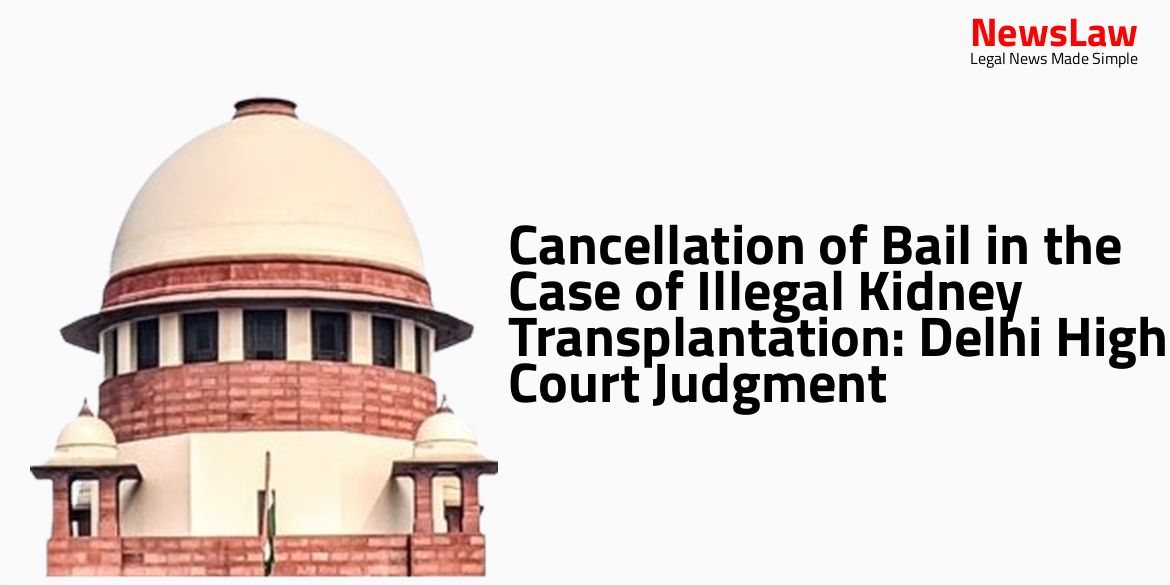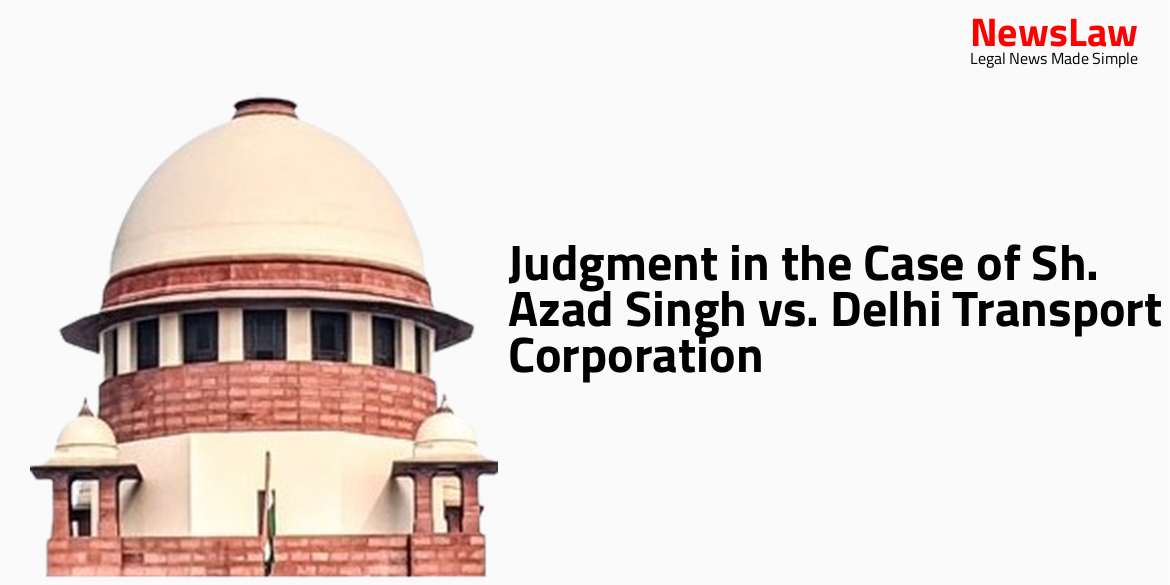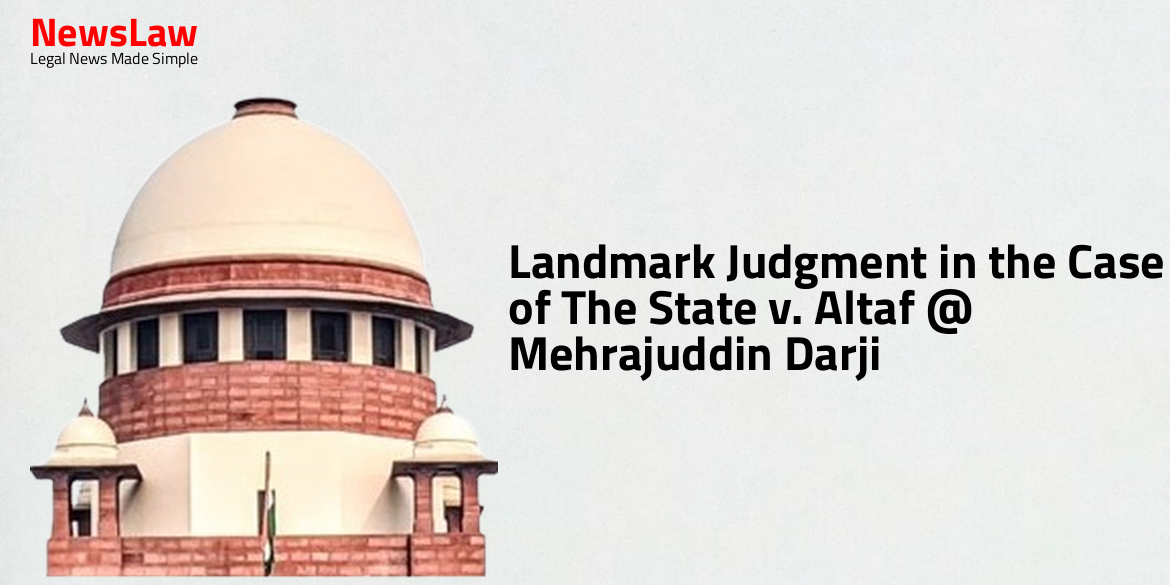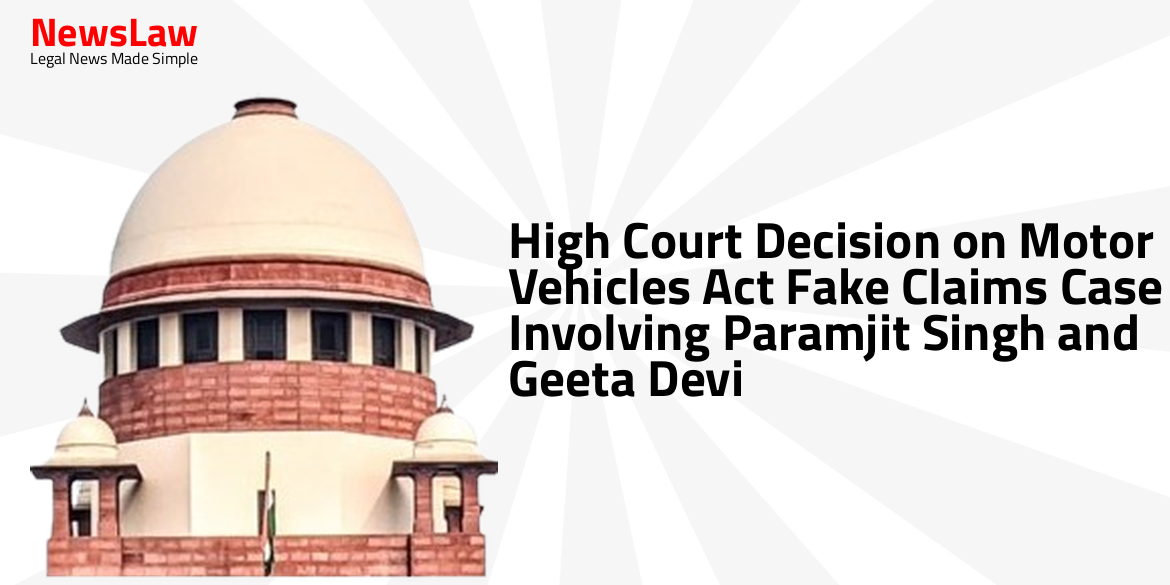A significant ruling by the Delhi High Court has addressed the cancellation of bail in a case related to illegal kidney transplantations. The judgment delves into the history of the respondent’s alleged involvement in illegal activities and the petitioner’s concerns regarding the respondent’s bail. Stay informed about the implications of this ruling on the legal landscape surrounding such criminal offenses.
Facts
- An FIR was registered against the accused at Police Station: Doivala, Dehradun for offences under IPC and TOHO Act.
- Proceedings before the Trial Court and High Court included the accused facing trial and being granted bail.
- An ECIR was recorded under the PMLA to investigate money laundering in connection with the scheduled offences.
- The accused was accused of conducting illegal kidney transplantation surgeries to acquire proceeds of crime.
- The petitioner sought cancellation of bail granted to the accused, leading to the matter being before the Court.
- The Supreme Court judgment in Tarsem Lal v. Directorate of Enforcement, Jalandhar Zonal Office, was awaited for its impact on the case.
- The accused allegedly acquired proceeds of crime through illegal kidney transplants and utilized it for personal gain.
- The accused was directly involved in the acquisition, utilization, and projection of proceeds of crime.
- Further quantification of proceeds of crime was stated to be ongoing.
- The accused had conducted illegal kidney transplantation operations without proper licenses or qualifications, endangering lives.
- RLC was found guilty of corruption charges.
- The evidence presented by the CBI was deemed sufficient to convict RLC.
- The Hon’ble CBI Court sentenced RLC to 5 years in prison.
- RLC’s involvement in the corruption case was established beyond a reasonable doubt.
Arguments
- The petitioner’s counsel argues that the respondent was acquitted in a case related to illegal kidney transplantations in 1996.
- The petitioner was not given the opportunity to oppose the respondent’s bail application in another case from 2000 involving charges under various sections of the IPC and TOHO Act.
- The counsel highlights the respondent’s history of illegal kidney transplantations, changing identities, absconding, and intimidating witnesses.
- The respondent has been moving locations to avoid legal repercussions and has a pattern of fleeing from the law.
- Despite past convictions and ongoing criminal activities, the respondent was granted bail without considering relevant factors by the Trial Court.
- Two FIR cases in Jaipur, Rajasthan have been disposed of, and bail granted in the third one.
- In Doivala, Dehradun, Uttarakhand, bail has been granted in two cases and interim bail in one.
- Case by CBI has been disposed of, conviction in another case under appeal.
- Bail granted in a case in Delhi, ECIR registered in 2017.
- Petitioner did not arrest respondent during investigation, filed a complaint in 2022 without arrest.
- Alleged proceeds of crime involved is Rs.89 lakhs, hence Section 45 of PMLA may not fully apply.
- Supreme Court’s judgment in Satender Kumar Antil applied for bail grant.
- Benefit of Section 436A of Cr.P.C. denied due to respondent not being arrested earlier.
Analysis
- The Court emphasized that bail should not be categorised for all offences collectively to avoid denying bail solely based on the category of the offence.
- The Court highlighted that special acts, including PMLA, have specific provisions that need to be considered when granting bail.
- The Court mentioned that the accused who appear in court should typically be released on bail, except in cases where custody is necessary for trial completion or further investigation.
- The Court stated that even in cases where the accused is not arrested during investigation, the court must judicially decide on remanding the accused based on relevant factors on a case-to-case basis.
- The Court specified various circumstances where bail can be cancelled, such as serious discrepancies or misuse of bail, past criminal record ignorance, or the accused’s influential position.
- The Court directed that in economic offence cases, factors like gravity of the offence, the object of the special act, attending circumstances, and sentence period should be considered while granting bail.
- The Court discussed the power of the court to cancel bail even without supervening circumstances if the bail was erroneously granted.
- The Court explained the importance of following the guidelines while considering bail applications in trial courts and High Courts.
- The Court criticized the practice of some Special Courts under the PMLA for taking accused into custody after summons appearance, stressing that remand should only be in necessary cases.
- The Court highlighted the importance of the accused regularly appearing in court and fulfilling the formalities to secure their presence during trial proceedings.
- The Court pointed out the need for speedy adjudication, especially in cases with rigorous bail conditions.
- The judgment of Hon’ble Supreme Court in Satender Kumar Antil (supra) is applicable in the present case
- Grounds for cancellation of bail as laid down in Dolat Ram v. State of Haryana, (1995) 1 SCC 349 are: interference with justice, evasion of justice, abuse of concession, likelihood of absconding, misuse of bail, tampering with evidence
- Economic offences are covered by separate guidelines as per P. Chidambaram v. Directorate of Enforcement, (2020) 13 SCC 791; and Sanjay Chandra v. CBI, (2012) 1 SCC 40
- Considerations for cancellation of bail must include seriousness of the crime and severity of punishment as per Prakash Kadam v. Ramprasad Vishwanath Gupta, (2011) 6 SCC 189
- Bail once granted should not be cancelled in a mechanical manner; supervening circumstances must be considered as per various judgments
- Procedure under Section 170 CrPC applies to both police charge sheets and complaints under PMLA as per Supreme Court observations
- Section 88 of CrPC applies to complaints under Section 44(1)(b) of PMLA after the filing of the complaint
- Different considerations apply for accused not arrested till filing of complaint in PMLA cases as per Tarsem Lal (supra) and Pankaj Jain (supra)
- Distinction made in bail proceedings between cases with laundering amounts above and below a crore as per Supreme Court in Mahipal (2020) 2 SCC 118
- The Court has discretion to issue warrants or summons, preference for summons in cases where accused not arrested till complaint as per Inder Mohan Goswami v. State of Uttaranchal, (2007) 12 SCC 1
- Judicial discretion in bail applications, consideration of relevant factors, and avoidance of irrelevant material highlighted in various judgments like Neeru Yadav v. State of U.P. (2014) 16 SCC 508
- Principles governing cancellation of bail reiterated by Supreme Court in Deepak Yadav v. State of U.P., (2022) 8 SCC 559, emphasizing appearance before Special Court after summons issued in PMLA cases
- Complaint filed under Section 44(1)(b) of the PMLA will be governed by Sections 200 to 205 of the CrPC.
- Accused not arrested by ED till filing of the complaint will be subject to normal rules under Sections 200 to 205 of the CrPC.
- Custodial interrogation at the stage of charge-sheet/complaint can be permitted by the Special Court only if deemed necessary.
- ED can arrest a person not shown as an accused in the filed complaint under specific circumstances as per Section 44(1)(b) of the PMLA.
- Observations made hereinabove are only for deciding the question of cancellation of bail.
- Satender Kumar Antil (supra-2022) and Tarsem Lal faulted the respondent for not being required to apply for bail.
- Sections 436A and 428 of the Cr.P.C. were not applicable to the facts of the case.
- The Trial Court used these provisions to supplement its decision to release the account.
- Other cases against the respondent cannot influence the grant of bail in this specific case.
Decision
- The judgment will not affect any future applications for custody filed by the petitioner or bail applications submitted by the respondent before the Trial Court in Dehradun.
- The respondent may be released based on conditions set by the Trial Court if not required in any other case, without indicating a stance on the ongoing case.
- The judgment does not reflect on the case’s merits before the Trial Court.
- Pending applications are dismissed as they are no longer applicable.
- The petition itself is dismissed as well.
Case Title: DIRECTORATE OF ENFORCEMENT THR. ASSISTANT DIRECTOR Vs. AMIT KUMAR RAUT @ AMISH RAVAL (2024:DHC:4294)
Case Number: CRL.M.C.-4332/2022



